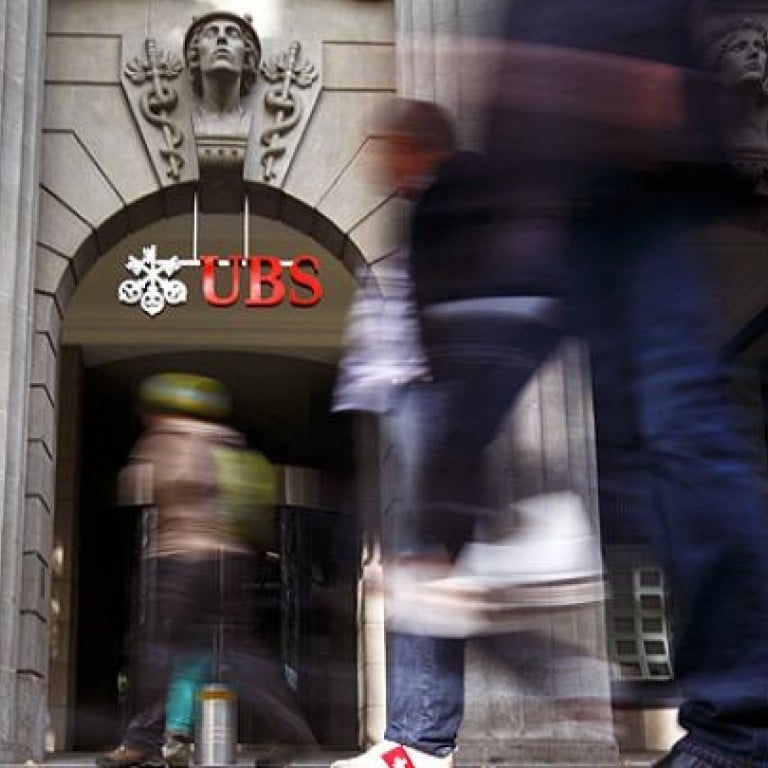
Swiss banking giant UBS slashes 10,000 jobs
UBS revealed plans on Tuesday to wind down its fixed income business and fire 10,000 bankers, in one of the biggest bonfires of finance jobs since the implosion of Lehman Brothers in 2008.
UBS revealed plans on Tuesday to wind down its fixed income business and fire 10,000 bankers, in one of the biggest bonfires of finance jobs since the implosion of Lehman Brothers in 2008.
The move will focus Zurich-based UBS around its private bank and a smaller investment bank, ditching much of the trading business that saw it lose US$50 billion in the financial crisis and one suspected rogue trader lose US$2.3 billion last year.
Chief Executive Sergio Ermotti, in charge for only 13 months, is spearheading the three-year investment banking overhaul that is aimed at saving 3.4 billion Swiss francs (US$3.63 billion) and returning cash to shareholders.
The Swiss bank will separate many fixed-income activities in order to wind down positions in businesses it will exit due to far tougher capital rules on riskier business.
Current investment bank co-head Carsten Kengeter will leave UBS’s top management board to head the discontinued unit.
The remaining investment bank, comprised of equities, foreign exchange trading, corporate advice, and precious metals trading, will be run by Andrea Orcel, a recent Ermotti hire from Bank of America who currently co-runs the unit with Kengeter.
“We will no longer operate to any significant extent in businesses where risk-adjusted returns cannot meet their cost of capital sustainably or in those with high operational complexity or long-tail risks likely to weigh on future returns,” chairman Axel Weber and Ermotti wrote in a letter to shareholders.
A smaller investment bank will leave UBS to focus on its private bank, which looks after the affairs of rich people. It is the second-largest operation of its kind in the world after Bank of America with US$1.554 trillion in assets according to a compilation by Scorpio Partnership.
UBS was one of the banks hardest hit by the financial crisis when its fixed-income unit racked up more than US$50 billion in losses after gorging on subprime securities, forcing it to seek a bailout from the Swiss government in 2008.
After settling a damaging US tax probe in 2009, the bank had just started to rebuild client confidence when the US$2.3 billion trading scandal surfaced in September last year.
Kweku Adoboli, who worked on the bank’s London-based exchange-traded equities funds desk, has pleaded not guilty to two counts of fraud and four of false accounting over the costly bets. His trial is under way in London.

The overhaul comes against the backdrop of far tougher regulation on riskier securities trading activities, and represents a return to advisory roots stemming from UBS’s purchase of Warburg, a British merchant bank, in 1995.
UBS stock rose sharply on Monday in anticipation of the plans, with investors cheered by the prospect of the bank paying out to shareholders the capital freed up as a result of the overhaul.
The expected UBS cuts will add to the tens of thousands of jobs the financial sector has shed globally since the financial crisis of 2008. UBS’s investment bank and fixed-income business in particular was the object of public anger in Switzerland following the 2008 government bailout.
UBS’s private bank, which won a healthy 7.7 billion francs in net new money from clients in the third quarter, also faces challenges, with profits falling as Swiss banking secrecy is weakened by repeated demands from foreign governments determined to recoup tax on undeclared funds held in offshore accounts.
UBS’s rival Credit Suisse said last week it was also making more cost cuts as part of efforts to bolster its profits and capital position.
UBS swung to a third-quarter net loss of 2.172 billion francs, hit by the restructuring charges as well as 863 million francs in charges on the value of its own debt. Analysts in a Reuters poll had forecast a net profit of 457 million francs.
